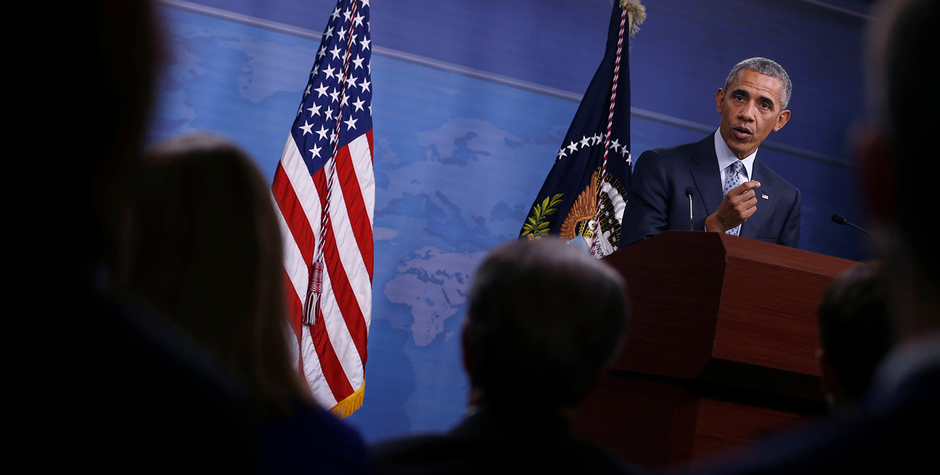D.C. Circuit Deals A Major Blow to the Abusive Exercise of Executive Power
This week, the D.C. Circuit Court of Appeals in PHH Corp. V. Consumer Financial Protection Bureau (CFPB) dealt a major blow to the Obama Administration’s stubborn defense of rogue and renegade bureaucratic agencies that steal our democracy one agency at a time.
The D.C. Circuit Court of Appeals blocked the unaccountable execution of executive power by ruling that the 5-year old CFPB’s unusual independence is unconstitutional. In reaching this decision, the court elevated individual liberty and demolished an attempt to expand executive overreach. As the court said: “The U.S. Government’s executive power to enforce federal law against private citizens . . . is essential to societal order and progress, but simultaneously a grave threat to individual liberty.”
As Professor Todd Zywicki observes, the CFPB was the centerpiece of the Obama Administration’s Dodd-Frank financial reform legislation. Professor Zywicki notes: “Few bureaucratic agencies in American history, . . have combined the vast power and lack of public accountability of the CFPB. It is an independent agency inside another independent agency, presided over by a single director who is insulated from presidential removal.”
At its inception, the CFPB was given almost unlimited and largely unreviewable power to oversee and regulate the financial industry and, as they claim, “the economy as a whole.” As Professor Zywicki accurately explains, the CFPB, as constituted, was afflicted with bureaucratic pathologies. This affliction operates contrary to ACLJ’s Chief Counsel Jay Sekulow’s intuition that the U.S. Constitution limits the exercise of arbitrary power. In his bestselling book, Undemocratic, Jay Sekulow indicates that government exists not to sustain itself but rather to protect and defend individual liberty. It follows that a government infected by bureaucratic pathologies cannot protect and defend liberty and is therefore not a government worth sustaining.
Evidently, the D.C. Circuit Court of Appeals agrees.
The court notes that, as proposed by then-Professor and now-Senator Elizabeth Warren, the CFPB was to be another traditional, multi-member independent agency. But Congress, in its legislative wisdom while under the control of leftist majorities, ultimately departed from the Warren and Obama Administration proposals. Congress established the CFPB as an independent agency headed not by a multi-member commission but rather by a single Director.
Responding to the prospect of virtually unchecked power, the court makes the following observations, which I have pulled from the more than 100-page opinion and edited for your convenience below:
- In light of the consistent historical practice under which independent agencies have been headed by multiple commissioners or board members, and in light of the threat to individual liberty posed by a single-Director independent agency, we conclude that precedent cannot be stretched to cover this novel agency structure. We therefore hold that the CFPB is unconstitutionally structured.
- In this case, the single-Director structure of the CFPB represents a gross departure from settled historical practice. Never before has an independent agency exercising substantial executive authority been headed by just one person.
- The CFPB’s concentration of enormous executive power in a single, unaccountable, unchecked Director not only departs from settled historical practice, but also poses a far greater risk of arbitrary decision-making and abuse of power, and a far greater threat to individual liberty, than does a multi-member independent agency.
- The overarching constitutional concern with independent agencies is that the agencies are unchecked by the President, the official who is accountable to the people and who is responsible under Article II for the exercise of executive power. Recognizing the broad and unaccountable power wielded by independent agencies, Congresses and Presidents of both political parties have therefore long endeavored to keep independent agencies in check through other statutory means. In particular, to check independent agencies, Congress has traditionally required multi-member bodies at the helm of every independent agency. In lieu of presidential control, the multi-member structure of independent agencies acts as a critical substitute check on the excesses of any individual independent agency head – a check that helps to prevent arbitrary decision-making and thereby protects individual liberty. This new agency, the CFPB, lacks that critical check.
When our constitutional liberties are discarded, then the government is weaponized to favor groups and institutions that it prefers. It is clear that the Framers understood that the exercise of virtually unlimited power poses a threat to individual liberty. The Framers thus placed limits on executive power by creating checks and balances. The D.C. Circuit Court of Appeals rightly recognized that the CFPB imperils individual liberty by subjecting it to the “whims and idiosyncratic views of a single individual.” Unchecked power represents a clear and present danger to freedom and unduly infringes on individual rights.
Executive overreach must stop.
All Americans who favor individual liberty and a limited government, which operates consistently with the Framers’ intention to protect our fundamental God-given freedoms, should celebrate the D.C. Circuit Court’s decision to safeguard and preserve our freedoms and strengthen the rule of law.
The Constitution requires no less.
